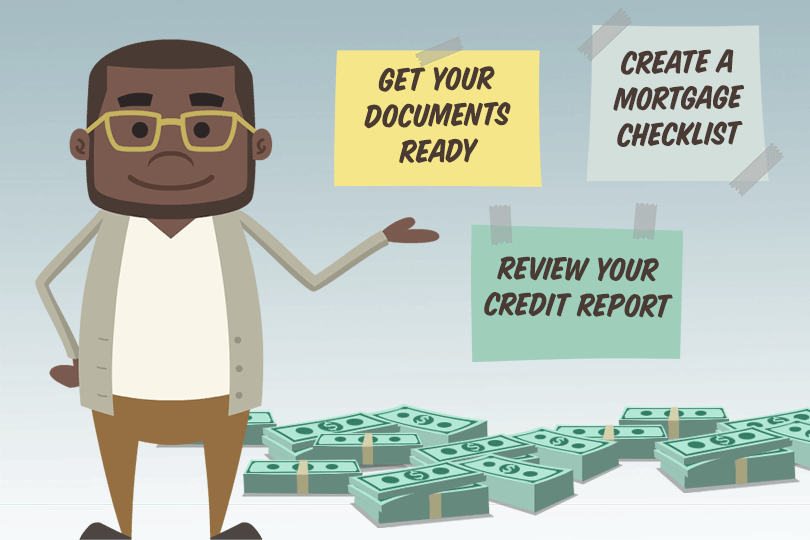Planning and Saving for a New Home
February 7, 2023
This large, upfront cost of buying a house is what keeps many potential homebuyers in a renter’s trap, that is when they don’t can’t put away money for a down payment because most of their income is going towards paying rent.
While it can seem overwhelming, there are ways to start saving and getting out your apartment.
Figure Out How Much to Save
The best way to get anything done is having a measurable goal to work toward. So, your first step needs to be determining how much money you’re going to put down on a home. This starts with setting a budget on the purchase price, and then deciding on a percentage for the down payment.
For example, say you have capped your budget at $200,000 for a new house. Now determine how much of that price can you pay down. To avoid paying the private mortgage insurance on a conventional loan, you’ll need to pay at least 20% of that price up front, which in this case would be $40,000. You can also look at more affordable options, like FHA home loans, that allow borrowers to pay 3.5% of as down payment. Just keep in mind that you will have to pay a mortgage insurance premium with that as well.
Once you have a number in mind, calculate how long it will take you to save up. Attempt to save the goal amount within 24 months, so you can start saving for other expenses as well. Set up a separate savings account, and start putting money away.
Cut Down on Expenses
This may sound impossible at first, but it is completely within your ability to get rid of certain spending habits. If you take the time to look at your monthly expenses, you’ll see so many places where you can cut back and save. Here are just a few examples:
- Instead of splurging on new clothing every month, buy one new item every 3 months.
- Only buy generic store brands for groceries.
- Don’t eat out, unless it’s a special occasion.
- Cancel your gym membership and do home workouts.
- Buy coffee in bulk and make it at home.
Many people choose to be responsible and start saving for retirement early in their careers. While this is a great way to lessen stress in the future, it might help to press pause while you are saving for a down payment. Instead, take whatever percentage you save for retirement every month and start placing it in a separate account for the down payment. This is only temporary, and shouldn’t last more than two years. Once you’ve met your down payment goal, you can go back to adding to your retirement account.
Think of Additional Income Sources
The truth is that saving for a down payment takes work and dedication, which means that in addition to cutting back on expenses, you may need to look at cutting back on free time and leisure as well. Think about skipping your annual summer vacation for one year and putting the money into your savings account. You can also utilize your free time to picking up a second job.
There are a number of ways you can earn a little extra cash by doing simple things in your wheelhouse. Look into part-time jobs, such as tutoring or babysitting. If you’re good at making something, look into selling it online! There are a bunch of ways you can bring in some more money every month if you put in the time.
------------------------------
RELATED VIDEOS:
There's a Difference Between APR and Interest Rates
Choose Your Mortgage Lender Carefully
Getting Started With Your FHA Loan Application

FHA Loan Articles
May 14, 2025When you buy a home with an FHA mortgage, you must pay for both mortgage insurance and insurance to protect your property while paying on the loan. There are important nuances to these insurance policies to know before you start. What's the difference between insurance against water damage and flood insurance? That's just one example of the "hidden" expenses of buying your new home to budget for.
May 13, 2025Buying a home with an FHA mortgage means you'll need to know the FHA guidelines about the types of properties you can purchase with an FHA single-family home loan for residential purposes. How well do you understand these rules? Are you truly ready to start house hunting? We examine some key aspects of the process.
May 12, 2025FHA single-family home loans require a minimum 3.5% down payment for typical transactions. Saving for this requires planning and dedication, but it’s not impossible to save enough to make the down payment. How do people typically budget and save for this? Your financial needs and goals will play a big role in how much you decide to set aside for your new home, but here are some options to think about...
April 30, 2025 In a previous post, we discussed why FHA borrowers should carefully consider whether paying for discount points truly serves their best interests, focusing on factors like short-term homeownership, opportunity cost, FHA mortgage insurance, and the prevailing interest rate environment. Discount points are an option for borrowers willing to pay a fee to lower the interest rate by a set amount. This is not right for all borrowers, and you don't want to pay for points you won't benefit from during the loan term.
April 29, 2025Are you considering buying a home with an FHA loan? You'll likely talk to your participating lender about FHA loan "discount points" – fees you pay upfront for a lower interest rate on your mortgage. The idea behind discount points is a straightforward exchange: you spend money today to reduce your interest rate. Typically, one point equals one percent of your total FHA loan. In return, your interest rate might decrease by an amount you and the lender agree upon.







